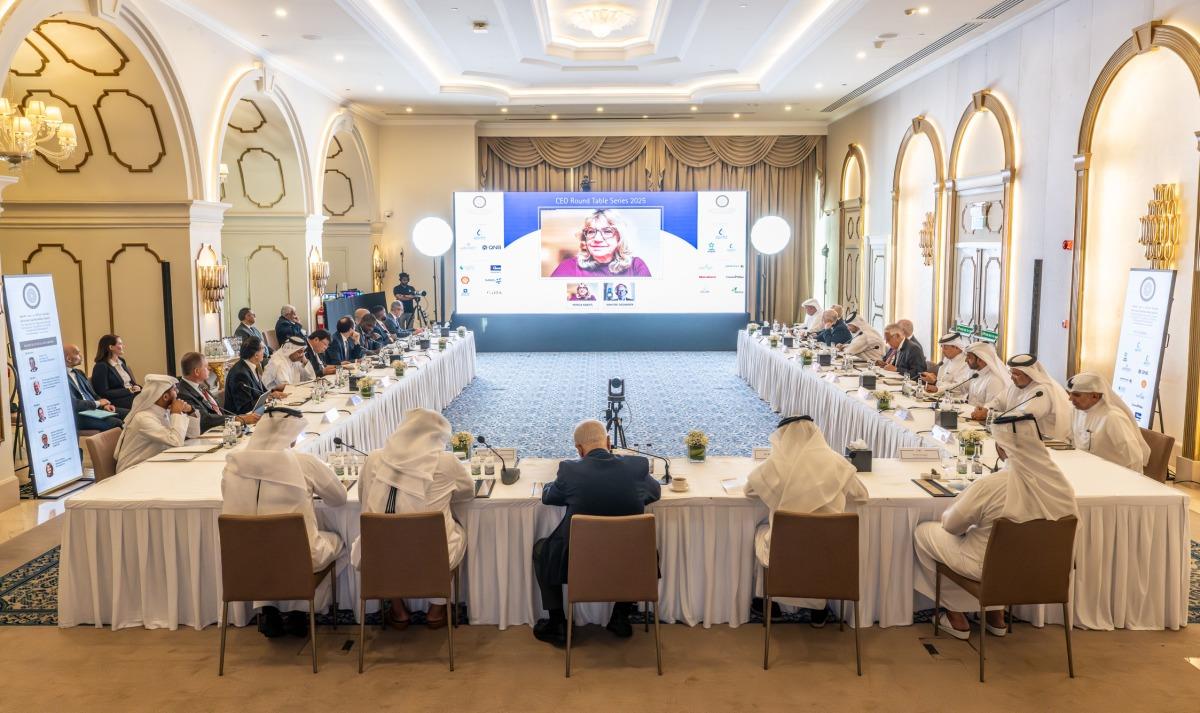
Policymakers Examine Critical Shifts In Global LNG Supply, Demand
Doha, Qatar: Industry leaders, policymakers, and global experts gathered in Doha yesterday for the Al-Attiyah Foundation's third CEO Roundtable of the year to examine the critical shifts in global LNG supply and demand. Held under the Chatham House Rule, the event titled“2025 and Beyond: The Critical Shifts in LNG Supply and Demand” facilitated a frank and insightful exchange on short-term market volatility, long-term structural changes in the LNG industry, and the impact of geopolitical developments, with a special emphasis on LNG's role in the global energy transition, innovation, and strategic resilience.
The roundtable was moderated by veteran journalist Stephen Cole and featured expert speakers including Patricia Roberts, Managing Director of LNG-Worldwide Ltd; the Rt Hon Charles Hendry, former UK Minister of State for Energy & Climate Change; Ivan Føre Svegaarden, Head of Energy Analysis and Weather Risk Management at TradeWpower AS; and Matthew Wittenstein, Section Chief at the United Nations Economic and Social Commission for Asia and the Pacific (UNESCAP).
Participants noted that by 2025, the United States is expected to account for over a quarter of global LNG supply, while Qatar's North Field Expansion will raise its output capacity from 77 to 126 million tonnes per annum (MTPA) by 2027. This surge in supply is colliding with uncertain trends of demand in Asia and Europe, forcing a recalibration of trade dynamics, pricing mechanisms, and infrastructure investment. Such conditions have created key market tensions – rapid capacity build-up versus unpredictable long-term demand, short-term price volatility versus long-term contract stability, and climate targets versus energy security imperatives.
With these challenges in mind, the roundtable explored how LNG supply chains are adjusting to new geopolitical realities, expanding production capabilities, and tapping into emerging demand centers. Delegates assessed the impact of major new LNG projects coming online and the ramp-up of existing facilities on global pricing, trade flows, and long-term contracts.
As part of the discussion on innovation, participants also highlighted the growing role of digitalisation and artificial intelligence (AI) in the LNG sector. From predictive analytics to real-time optimisation, AI-driven technologies are improving operational efficiency, cutting emissions, and enhancing performance in LNG operations.
Speaking after the roundtable, H E Dr. Ibrahim Ibrahim Vice Chairman of the Board of Trustees of the Al-Attiyah Foundation & former Economic Advisor at Amiri Diwan said:“It was a pleasure to welcome our members, partners and expert guest speakers to this significant event. LNG is undoubtedly undergoing critical shifts that will shape the global energy future.
This roundtable provided a valuable platform for attendees to evaluate the emerging opportunities and challenges in the LNG market and to consider how best to navigate these changes to ensure energy security, drive innovation, improve sustainability, and maintain global competitiveness.”

Legal Disclaimer:
MENAFN provides the
information “as is” without warranty of any kind. We do not accept
any responsibility or liability for the accuracy, content, images,
videos, licenses, completeness, legality, or reliability of the information
contained in this article. If you have any complaints or copyright
issues related to this article, kindly contact the provider above.


















Comments
No comment